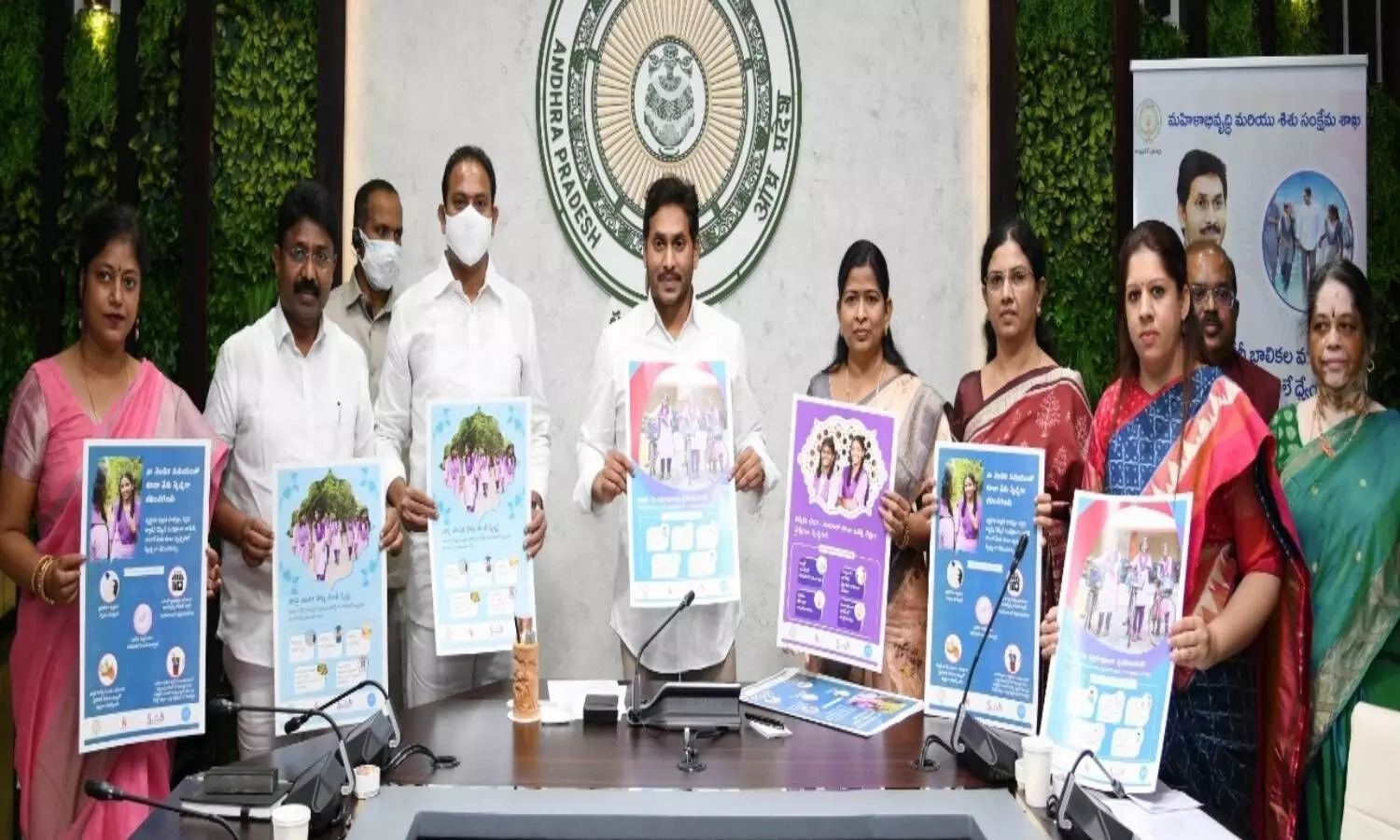AP to provide free sanitary napkins to students in govt schools
Andhra Pradesh Chief Minister Y.S Jagan Mohan Reddy launched the 'Swechha' programme on Tuesday to tackle stigma attached to menstruation, prioritize female hygiene, and encourage a healthy dialogue of information.
By Newsmeter Network
Vijayawada: Andhra Pradesh Chief Minister Y.S Jagan Mohan Reddy launched the 'Swechha' programme on Tuesday to tackle stigma attached to menstruation, prioritize female hygiene, and encourage a healthy dialogue of information. 'Swechha' (meaning freedom) is intended to ensure affordable access to health and menstrual hygiene in adolescent girls and women.
Under the initiative, the state government will provide good quality sanitary napkins to female students in government educational institutions free of cost. Ten sanitary napkins will be given every month to about 10 lakh adolescent girls in classes 7 to 12 in all government schools and intermediate colleges across the state. The project is set to cost Rs. 32 crores.
A total of 120 napkins per year are allotted to every female student. Even during summer vacations, the students will be supplied their quota before they leave school. Each school will appoint a female educator as a nodal officer to help the students with sanitary napkins supply, teach them safe methods of disposal, and provide any assistance they may require. Further, for a safer and environment-friendly way of disposal, the state government has set up 6,417 incinerators across the state through the Clean Andhra Pradesh (CLAP) initiative.
The free sanitary products being supplied are a result of the state government signing MoUs with corporate conglomerates like P&G and Niine Pvt. Ltd (the brands being supplied in government schools are Whisper and Niine). Additionally, through the MoUs, sanitary napkins will be sold at YSR Cheyutha retail stores at low prices to around one crore women residing in both rural and urban areas.
As part of a monthly orientation program, nodal officers, ANMs, and mahila police will gather at the local Sachivalayam to educate and create awareness amongst female students studying between classes 7 and 12, the state announced.
A report from the United Nations Water Supply and Sanitation Collaborative Council estimated that 23% of girls in India drop out of school due to lack of menstruation products, inadequate surroundings to change sanitary napkins, lack of running water, and absence of disposal facilities.
Menstruation is still considered a taboo subject in most parts of the country and discussions about it are avoided. Poverty and harmful traditions can turn menstruation into a time of deprivation and stigma, leading to another common misconception that women and girls have diminished capacities, whether physical or emotional, due to their menstrual cycles. These ideas can create barriers to opportunities, reinforcing gender inequality. In truth, most women and girls do not have their abilities hindered in any way by menstruation, the lack of the right products and guidance contributes majorly to women and girls being held back when experiencing their period.
The state said it is taking proactive steps to ensure that female students continue to receive an education. It said restroom facilities for girls with uninterrupted water supply are being built in 56,703 government schools, hostels, and educational institutions and are set to be completed by July 2023. The construction of separate restrooms in 15,715 schools has already been completed, it added.